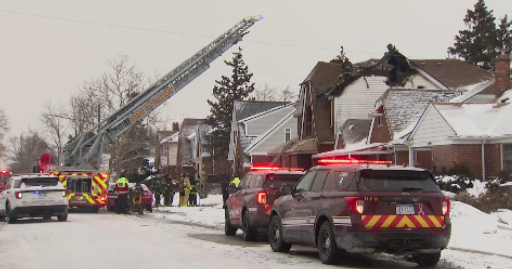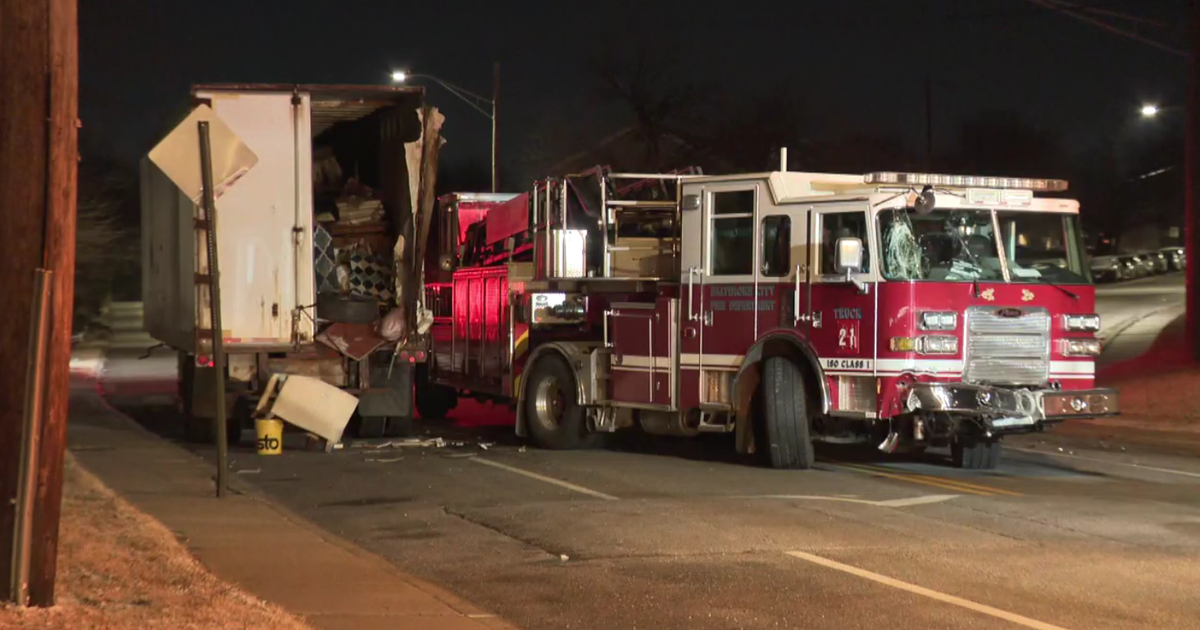Revel Casino To Allow Smoking As Part Of Bankruptcy Filing
ATLANTIC CITY, N.J. (AP) - When the smoke clears from Revel's bankruptcy --- there will be smoke.
Atlantic City's only smoke-free casino will soon allow patrons to light up on the gambling floor as part of the Chapter 11 bankruptcy filing it made late Monday night.
Allowing patrons to smoke is only one of several big changes the $2.4 billion resort is planning. Its bankruptcy filing read like a laundry list of mistakes and misfortunes that caused the much-heralded resort to struggle sine the day it opened last April.
Among the missteps cited by Dennis Stogsdill, Revel's chief restructuring officer, were a $100 million cost overrun it blamed on a contractor; the casino's failure to connect with day-trippers; too-expensive food and drinks, and the lack of a players' club. Closing for six days last fall for Superstorm Sandy didn't help, either.
"While Revel's resort and convention center segments have performed reasonably well in the first year of operations, the casino has struggled mightily to make headway with the traditional Atlantic City patron that does not stay overnight, an important segment of the customer base for any Atlantic City casino,'' he wrote in court documents. "Some of the debtors' early wounds were caused by third parties, others were due to an act of God. Still others, it must be acknowledged, were self-inflicted.''
Stogsdill also said Revel botched its initial marketing efforts, calling them "not well-conceived and executed.'' It introduced itself with a widely broadcast television ad featuring a model disappearing into a suitcase, roasting a cupcake with a blowtorch, and a poolside guest wearing a bizarre mask.
Revel's bankruptcy filing lists $1.1 billion in assets and $1.5 billion in liabilities.
The casino says it plans to exit bankruptcy court by May 30. The restructuring will wipe out 82 percent of its $1.5 billion debt, leaving it with a manageable $272 million in debt.
Revel has languished near the bottom of Atlantic City's 12 casinos in terms of gambling revenue since opening on April 2, 2012. It posted gross operating losses of $35 million and $37 million in the second and third quarters of last year, and hundreds of millions of dollars in extra financing last year was not enough to get Revel through the winter.
The decision to file for bankruptcy was made in early February after lenders indicated they were unwilling to put any more money into Revel without a substantial reduction in its debt.
The deal, agreed to in advance by a majority of lenders, will eliminate most of Revel's debt by converting it into equity in the resort for lenders.
Some of its lenders will provide $250 million in debtor-in-possession financing, approximately $42 million of which constitutes new money commitments
In addition, lenders have committed $335 million in exit financing, which consists of a $75 million revolver and $260 million term loan. The proceeds of the exit financing will be used to provide Revel with additional working capital, pay for some capital expenditures, repay the debtor-in-possession financing and pay expenses related to the restructuring when Revel emerges from bankruptcy court, the company said.
Both sides will make a first appearance in bankruptcy court in Camden on Wednesday afternoon.
Steve Norton, a casino analyst who was vice president of Resorts when it opened as the first U.S. casino outside Nevada in 1978, said Revel needed to reconsider its no-smoking policy and reorient its marketing more to casino players instead of conventioneers. It also is hurt by being a stand-alone property unaffiliated with a larger parent company with an extensive multistate database of customers from which to draw, Norton said.
And he also said Revel needs to get real when it comes to food and hotel room prices, which are higher than those of most of its competition. Indeed, just a few hours before filing the bankruptcy petition Monday, Revel sent out a marketing email offering hotel rooms starting at $129 a night during the week, more in line with its lower-cost competitors.
"While this would not be a problem for the convention trades, where the attendee is on an expense account, it can be a big negative for the frequent independent traveler, overnight guest and the day tripper, that provides much of Atlantic City's customer base,'' Norton said. "Revel doesn't have the level of low priced food options like every other Atlantic City casino.''
Norton said Revel was hurt by many factors, including the decision not to build a second hotel tower when the project ran out of money halfway through construction. He also specifically absolved former CEO Kevin DeSanctis of responsibility for its problems. DeSanctis is staying with a corporate affiliate to work on amenity projects for the resort.
"The substantial construction cost of Revel, the loss of 1,900 of their rooms, the general collapse of the economy, the U.S. unemployment problem and new gaming options in Pennsylvania and New York - all causing a 40 percent decline in casino revenues - are the primary reasons for Revel's failure, not Kevin DeSanctis,'' Norton said. "And without him, the property would still be an empty shell like Boyd's Echelon Place or the Fontainebleau, on the Vegas Strip.''
Revel says it plans to continue its existing player loyalty programs, promotions, dining options and entertainment shows, including sold-out concerts by Alicia Keys and Rihanna.
(Copyright 2013 The Associated Press. All Rights Reserved. This material may not be published, broadcast, rewritten or redistributed.)







